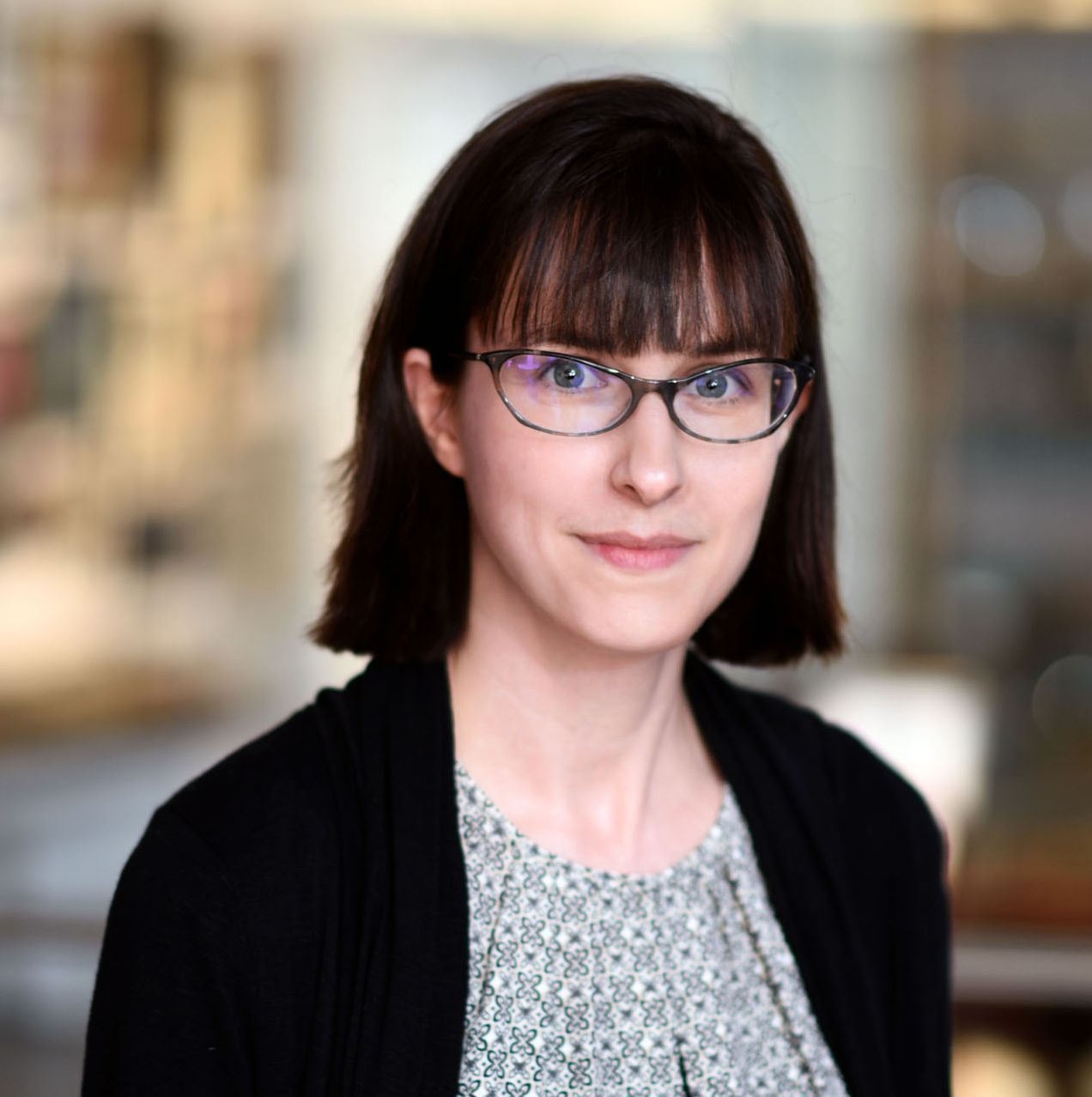Lindsay Burrage, M.D., Ph.D.
Picture

Positions
- Associate Professor
-
Baylor College of Medicine
Addresses
- Alkek Building for Biomedical Research (Lab)
-
ABBR-R807
MS: BCM225
Houston, TX 77030
United States
Phone: (713) 798-7554
burrage@bcm.edu
Education
- Residency at Baylor College of Medicine
- Houston, Texas United States
- Medical Genetics
- Fellowship at Baylor College of Medicine
- Houston, Texas United States
- Biochemical Genetics
- M.D, Ph.D. from Case Western Reserve University
- 05/2008 - Cleveland, Ohio United States
- Residency at Case Medical Center University Hospital
- Cleveland, Ohio United States
- Pediatrics
Certifications
- General Pediatrics
- American Board of Pediatrics
- Clinical Genetics
- American Board of Medical Genetics and Genomics
- Biochemical Genetics
- American Board of Medical Genetics and Genomics
Professional Statement
As a physician-scientist and clinical biochemical geneticist, I have a long-standing interest in the pathophysiology of inborn errors of metabolism and their utility as models for more common disorders. Our group uses laboratory-based approaches in murine models and clinical studies to gain greater understanding of the etiology of long-term complications of inborn errors of metabolism with a special focus on urea cycle disorders in order to optimize management strategies for our patients.One main focus of my research program is to gain a greater understanding of chronic liver disease in individuals with urea cycle disorders. As an investigator in the Urea Cycle Disorders Consortium (UCDC) of the Rare Diseases Clinical Research Network, we used data from the UCDC Longitudinal Study of Urea Cycle Disorders to investigate liver disease in urea cycle disorders. Through this work, we demonstrated an increased prevalence of chronic hepatocellular injury in two distal urea cycle disorders (argininosuccinate lyase deficiency and arginase deficiency) compared to disorders impacting enzymes that are more proximal in the cycle. To follow-up this work, we are performing a more comprehensive assessment of liver disease using serum biomarkers and novel imaging techniques in individuals with urea cycle disorders.
Our clinical study of hepatic complications complements our laboratory-based work in the murine model of argininosuccinate lyase deficiency (ASLD). We are using an ASL-deficient mouse model to investigate mechanisms underlying the chronic hepatic complications observed in our patients. The ASL-deficient mice model the human disorder with urea cycle dysfunction, nitric oxide (NO) deficiency, and chronic hepatocellular injury with hepatomegaly. In addition, as in human patients with the disorder, we have discovered hepatic glycogen accumulation and impaired hepatic glycogenolysis in these mice. We are currently dissecting the relative contributions of urea cycle dysfunction and NO deficiency to chronic hepatocellular injury and hepatic glycogen accumulation in ASL-deficient mice. We are also exploring molecular and biochemical mechanisms by which ASL deficiency causes chronic liver disease.
To complement my independent research program, I am involved in a variety of large interdisciplinary research teams investigating rare and undiagnosed diseases. Locally, at BCM, I have a leadership role in the sequence analysis team (e.g. exome and genome) for the Baylor College of Medicine site for the Undiagnosed Diseases Network (UDN). The work of our team has led to discovery of multiple new disease genes and phenotypic expansion in the setting of a wide variety of phenotypes. In addition, I am one of the principal investigators for the new BCM Center for Precision Medicine Models. This large collaborative project focuses on the generation and use of precision medicine models to support gene discovery in rare undiagnosed diseases and to facilitate pre-clinical studies to investigate therapies for these disorders.
Websites
Selected Publications
- Santiago-Sim T*, Burrage LC* et al. "Biallelic Loss-of-Function Mutations in OTUD6B Cause an Intellectual Disability Syndrome Associated with Seizures, Microceophaly, Absent Speech, Hypotonia, Growth Retardation with Prenatal Onset, and Dysmorphic Features." Am. J. Hum. Genet. 2017 Apr;100(4):676-688. Pubmed PMID: 28343629
- Burrage LC et al. "Human recombinant arginase enzyme reduces plasma arginine in mouse models of arginase deficiency." Hum. Mol. Genet. 2015 Nov 15;24(22):641-27. Pubmed PMID: 26358771
- Burrage LC, Charng WL and Eldomery MK et al. "De Novo GMNN Mutations Cause Autosomal-Dominant Primordial Dwarfism Associated with Meier-Gorlin Syndrome." Am J Hum Genet. 2015 Dec 3;97(6):904-13. Pubmed PMID: 26637980
- Chong JX and Burrage LC, et al. "Autosomal-Dominant Multiple Pterygium Syndrome Is Caused by Mutations in MYH3." Am. J. Hum. Genet. 2015 May 7;96(5):841-9. Pubmed PMID: 25957469
- Burrage LC, Reynolds JJ, et al. "Bi-allelic Variants in TONSL Cause SPONASTRIME Dysplasia and a Spectrum of Skeletal Dysplasia Phenotypes." Am J Hum Genet. 2019;104(3):422-38. Pubmed PMID: 30773277
- Burrage LC, Thistlethwaite L, Stroup BM, Sun Q, Miller MJ, (...), Milosavljevic A, Lee BH, Elsea SH "Untargeted metabolomic profiling reveals multiple pathway perturbations and new clinical biomarkers in urea cycle disorders." Genet Med. 2019;21:1977-1986. Pubmed PMID: 30670878
- Stroup BM, Marom R, Li X, Hsu C, Chang C, Truong LD, Dawson B, Grafe I, Chen Y, Jian M, Lanza D, Green JR, Sun Q, Barrish JP, Ani S, Christiansen AE, Seavitt JR, Dickinson ME, Kheradmand F, Heaney JD, Lee B, Burrage LC. "A global Slc7a7 knockout mouse model demonstrates characteristic phenotypes of human lysinuric protein intolerance." Human Molecular Genetics. 2020 Aug;29:2171-2184. Pubmed PMID: 32504080
- Burrage LC and Madan S et al. "Chronic Liver Disease and Impaired Hepatic Glycogen Metabolism in Argininosuccinate Lyase Deficiency." JCI Insight. 2020 Feb;5:e132342. Pubmed PMID: 31990680
- Nagamani SCS, Ali S, Izem R, Schady D, Masand P, Shneider BL, Leung DH, Burrage LC "Biomarkers for liver disease in urea cycle disorders." Mol Genet Metab.. 2021;133:148-156. Pubmed PMID: 33846069
Funding
- Impaired Glycogen Metabolism and Chronic Liver Disease in Urea Cycle Disorders Burroughs Wellcome Fund Career Award for Medical Scientists
- Dissecting the Link Between Ureagenesis and Hepatic Glycogen Metabolism NIH R01DK126786
Log In to edit your profile







